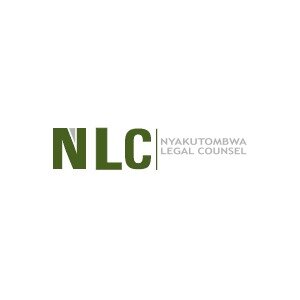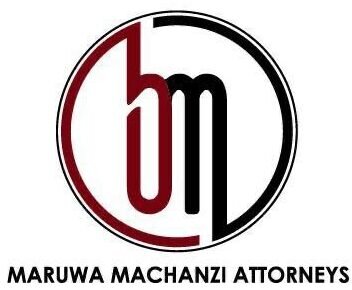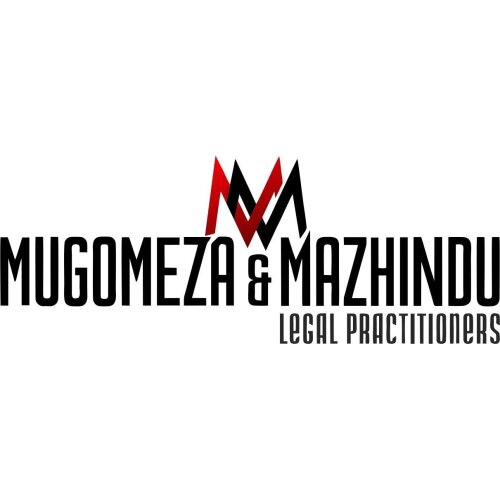Best Public-Private Partnerships (PPP) Lawyers in Zimbabwe
Share your needs with us, get contacted by law firms.
Free. Takes 2 min.
Or refine your search by selecting a city:
List of the best lawyers in Zimbabwe
About Public-Private Partnerships (PPP) Law in Zimbabwe
Public-Private Partnerships, commonly referred to as PPPs, are collaborative arrangements between government entities and private sector companies to finance, build, operate, and maintain infrastructure projects or deliver services. In Zimbabwe, PPPs are especially important in sectors such as transport, energy, water, healthcare, and education. The goal is to leverage private sector expertise, efficiency, and funding alongside public sector oversight to deliver public services and infrastructure more effectively. PPPs in Zimbabwe follow a regulated process to ensure transparency, value for money, and public benefit.
Why You May Need a Lawyer
Legal advice in relation to PPPs is crucial for numerous reasons in Zimbabwe. Individuals and organizations might need a lawyer when:
- Understanding the regulatory environment and legal requirements specific to Zimbabwean PPP projects
- Drafting, reviewing, or negotiating complex PPP agreements and contracts
- Ensuring compliance with local laws, procurement rules, and sector-specific regulations
- Managing risk, liability, and dispute mechanisms between public and private partners
- Handling approvals, permits, and due diligence during project procurement and implementation
- Assisting with structuring and financing large-scale PPP initiatives
- Representing interests in case of disagreements or disputes arising from the partnership or project execution
A lawyer with PPP expertise in Zimbabwe can help guide you through the process, safeguard your interests, and increase the chances of a successful outcome for your project or investment.
Local Laws Overview
PPP activities in Zimbabwe are governed by several key pieces of legislation and policy frameworks, including:
- Zimbabwe Investment and Development Agency Act: This Act governs investment promotion and provides the framework for engaging in PPPs.
- Public Procurement and Disposal of Public Assets Act: This law regulates all public procurement, including procedures specific to PPP arrangements, to ensure fairness and transparency.
- National PPP Policy Framework: This policy outlines the principles, processes, and institutional arrangements for undertaking PPPs in Zimbabwe.
- Sector-Specific Legislation: Additional laws may apply depending on the sector, such as the Energy Regulatory Authority Act or Road Development Act.
Key aspects of local laws relevant to PPPs include:
- Mandatory approval processes and feasibility studies for all PPP projects
- Public tendering and transparent procurement procedures
- Risk-sharing and performance-based contracting principles
- Environmental and social impact assessments
- Mandatory publication of project information in certain cases to promote accountability
- Clear processes for dispute resolution and contract termination
Understanding and complying with these local laws is essential to avoid costly mistakes and legal disputes during a PPP.
Frequently Asked Questions
What is a Public-Private Partnership (PPP)?
A PPP is a cooperative agreement where a government agency partners with a private company to deliver a public service or infrastructure project, sharing risks and rewards.
Who regulates PPPs in Zimbabwe?
PPPs are primarily regulated by the Zimbabwe Investment and Development Agency, alongside the Public Procurement Regulatory Authority. Sector-specific regulators may also be involved.
What types of projects can be developed as PPPs?
Typical PPP projects include roads, bridges, energy generation and distribution, water supply, schools, hospitals, and public housing projects.
How are PPP projects initiated in Zimbabwe?
Proposals can be initiated either by government (solicited) or by the private sector (unsolicited). All proposals undergo thorough feasibility studies and approvals before implementation.
What is the typical structure of a PPP agreement?
A PPP agreement outlines the roles and responsibilities, risk-sharing arrangements, payment structures, performance criteria, dispute resolution processes, and duration of the partnership.
How does the government select private partners for PPPs?
Through a competitive and transparent bidding process, as required by the Public Procurement and Disposal of Public Assets Act. Proposals are evaluated for value for money, efficiency, and technical competence.
What risks are typically allocated in a PPP?
Risks commonly allocated in PPP projects include construction, financial, operational, demand, and regulatory risks. The allocation depends on which party can manage each risk most effectively.
What happens if a dispute arises in a PPP?
PPPs include dispute resolution clauses, often specifying negotiation, mediation, arbitration, or litigation should disagreements occur.
Can foreign companies participate in Zimbabwean PPPs?
Yes, foreign companies are eligible to participate, subject to local laws and sectoral indigenization requirements. Legal counsel can clarify any restrictions or opportunities.
What legal support do I need for a PPP project?
Legal support is essential for due diligence, contract drafting, regulatory compliance, risk assessment, negotiations, and resolving any disputes that may arise during the project lifecycle.
Additional Resources
You may find the following resources and contacts helpful in pursuing or understanding PPPs in Zimbabwe:
- Zimbabwe Investment and Development Agency (ZIDA): Guides investment processes and PPP approvals
- Public Procurement Regulatory Authority of Zimbabwe (PRAZ): Oversees procurement procedures for PPPs
- Ministry of Finance and Economic Development: Responsible for PPP policy formulation and financial structuring
- Relevant sectoral ministries such as the Ministry of Transport and Infrastructure Development or Ministry of Energy and Power Development
- Law Society of Zimbabwe: For finding qualified legal practitioners experienced in PPP and infrastructure law
Next Steps
If you are considering embarking on, or are already involved in, a PPP project in Zimbabwe, here is how you can proceed:
- Seek an initial legal consultation with a lawyer specializing in PPPs or infrastructure projects
- Prepare all documentation related to your project idea or interest, including proposals and any correspondence with government departments
- Discuss the legal requirements and best structure for your PPP project with your lawyer
- Work with your lawyer to ensure compliance with all relevant local laws and regulations
- Engage with relevant government departments or agencies early in the process
- Continue to seek legal guidance throughout the project to manage risks and address any issues promptly
Taking these steps can help you avoid pitfalls, increase your project's success, and protect your interests when dealing with complex PPP arrangements in Zimbabwe.
Lawzana helps you find the best lawyers and law firms in Zimbabwe through a curated and pre-screened list of qualified legal professionals. Our platform offers rankings and detailed profiles of attorneys and law firms, allowing you to compare based on practice areas, including Public-Private Partnerships (PPP), experience, and client feedback.
Each profile includes a description of the firm's areas of practice, client reviews, team members and partners, year of establishment, spoken languages, office locations, contact information, social media presence, and any published articles or resources. Most firms on our platform speak English and are experienced in both local and international legal matters.
Get a quote from top-rated law firms in Zimbabwe — quickly, securely, and without unnecessary hassle.
Disclaimer:
The information provided on this page is for general informational purposes only and does not constitute legal advice. While we strive to ensure the accuracy and relevance of the content, legal information may change over time, and interpretations of the law can vary. You should always consult with a qualified legal professional for advice specific to your situation.
We disclaim all liability for actions taken or not taken based on the content of this page. If you believe any information is incorrect or outdated, please contact us, and we will review and update it where appropriate.
Browse public-private partnerships (ppp) law firms by city in Zimbabwe
Refine your search by selecting a city.

















